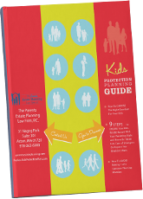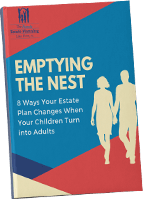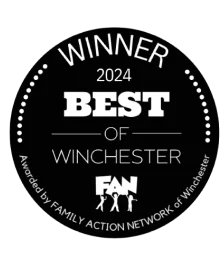By Guest Blogger, Tracey A. L. Ingle, Esq. of Ingle Law, P.C.
 It’s a sad story I hear all the time, “We finally spent all Mom’s money. I guess it’s time to apply for Medicaid now.” Ugh. It hurts. It legitimately hurts when I hear clients tell me their story of how they heard from someone that’s what they had to do.
It’s a sad story I hear all the time, “We finally spent all Mom’s money. I guess it’s time to apply for Medicaid now.” Ugh. It hurts. It legitimately hurts when I hear clients tell me their story of how they heard from someone that’s what they had to do.
The truth is, long-term care is expensive. Very expensive. It’s not unusual to find nursing homes in the MetroWest Massachusetts area costing over $400 per day.
Some folks have the means to pay for it. Some have long-term care insurance to help offset the cost. Some immediately qualify for Medicaid. But if you’re like most people, you’re stuck somewhere between. And that’s where the costliest mistakes happen.
Long-term care can be the biggest “purchase” of one’s lifetime. Look at the numbers. Four hundred dollars a day for a year is, well, a whole heck of a lot of money. Multiply that by a couple of years and you’re at nearly the cost of a house. Despite this major expense, many people do not seek out good advice.
Costly Medicaid Mistake #1 is taking advice from the wrong people.
You want to talk to someone who has your family’s best interests at heart and is loyal to only you. I love nursing homes, they have a very difficult industry to manage, but truth told, they don’t always tell families the whole story. I’ve heard time and again, “The nursing home told us Mom wouldn’t qualify for Medicaid until she spent everything down to $2,000.” That’s entirely true. The missing piece is that there are lots of different ways to spend down to that level – many of which will benefit Mom, make for a much better quality of life while in the nursing home and not require the kids to dig into their own pockets. (And trust me, no parent wants to ever be a financial burden on their kids. Ever.)
Most folks assume, however, they have to spend everything with the nursing home. And this is precisely what the nursing home wants to you assume. See, here’s something you probably didn’t think of. You know how when you go see your doctor, they bill your insurance company $350 for the visit, and then the insurance company “decides” they shall get paid $20.64? The same happens with nursing home costs.
A nursing home that charges a private pay rate of $400 per day, might only receive $270 per day at the Medicaid rate. If you were the nursing home, would you prefer to have your residents unassumingly paying the private pay rate, or knowingly receiving the Medicaid rate? And make no mistakes, nursing homes are businesses; they have a bottom line, and sometimes shareholders. They have your loved one’s medical best interest at heart, but possibly not financial best interest.
Avoid Costly Medicaid Mistake #2 by getting a second opinion.
Talk to a local elder law attorney to have an objective review by someone who knows all the rules and obligations of Medicaid. (You can ask David or anyone at The Parents Estate Planning Law Firm for a referral, or find a local elder law attorney at www.massnaela.com.) The meeting is protected by attorney-client privilege, so openly share financial information, including all financial activity for the prior five years – significant purchases, gifts, whether in the form of outright cash or by paying for a grandchild’s school, a wedding, or anything that didn’t directly benefit Mom or Dad.
Expect to pay for this review. It’s a valuable resource for your family provided by an attorney with skilled expertise. You wouldn’t expect a free physical from your doctor or a free cleaning from your dentist. Why would you expect a free analysis from your attorney? The attorney’s office should be able to quote you a flat fee for the meeting when you schedule it. And avoid free “initial consultations” – it might not be the thorough analysis you want, and need to rely on. You want to leave the meeting with a plan of action.
I also suggest you ask lots of questions on the financial implications of the advice from your elder law attorney.
Costly Medicaid Mistake #3 is not running the numbers.
Think of Medicaid financial eligibility as a Rubik’s Cube. You have to shift everything around into the right configuration for the Department of Medicaid to be happy, and ultimately approve the application. That usually means income tax implications.
It’s critical to calculate the income tax hit of Medicaid planning before pulling any triggers to make sure it will be worth it. If liquidating an IRA is going to mean $150,000 in additional income taxes, will it be worth it? Put another way, is Dad likely to need at least a year, or a year and a half in the nursing home? If not, counterintuitive as it is, privately paying may actually be less costly to the family.
There are other minor mistakes that are slowly getting debunked, but these are the three most costly mistakes families make. Bottom line, stop and think before acting or assuming. Get information from a reputable, knowledgeable source without a hidden agenda. Get a second opinion. And think through the consequences of your decisions.
Tracey is the Probate Puzzle Person and principal of Ingle Law, P.C., an estate planning and elder law firm with offices in Southborough and Marlborough. You can download Tracey’s Nuts and Bolts Guide to MassHealth by going to www.masshealthguide.com. The Guide covers eligibility for a single or married applicant, planning ahead, and crisis management for long-term care at home, in assisted living or a nursing home.













